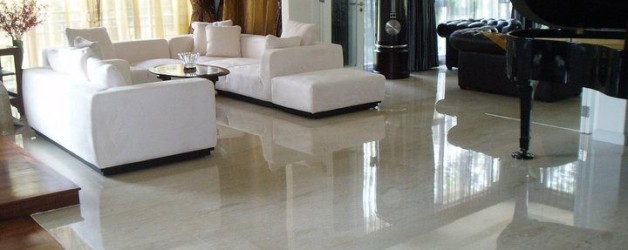Are you planning to update the flooring in your Memphis home or condo? Tile has made a comeback as a cool and fashionable flooring in all rooms of the home. Find out more regarding the benefits of various types of tile in your home.
Marble Tile: This tile is fashionable and very stylish natural stone. It is formed when limestone crystallizes as a result of being subjected to high pressures and high temperatures within the Earth. The stone undergoes a metamorphosis; it recrystallizes and becomes denser and harder. This process allows the marble to accept a nice and beautiful polish finish during fabrication. Marble, like any other natural stone, is a bit more susceptible to staining than other tile options. In fact, even water can stain a stone tile if allowed to sit. In addition, these everyday substances that contain acid can damage or stain Marble tile; alcoholic beverages, fruit juices, vinegar, tomato products, mustard, carbonated beverages, salad dressing, tea, coffee, butter, and cosmetics. Remember with any natural stone tile you will need to thoroughly clean the surface before routinely reapplying protective sealant.
Granite Tile: This is probably the hardest natural stone in existence. Granite is formed when magma is cooled underground. The process is extremely slow, and because of the time required to form granite it is both a strong and valuable stone. It is made up of several different minerals including feldspar and quartz as well as other minerals, such as mica, that give it a granular composition and course texture, which results in its earthy and natural appearance Nothing else will hold a shine or repel water the way granite will. However granite tile’s resilience is a blessing and a curse. Its shine and hardness make it an unforgiving surface despite its beauty. The installation of granite must be done with care. Your sub-flooring must be completely level, and strong enough to support the granite, which is very heavy. Irregularities such as bumps or dips in the sub-flooring can cause granite tiles to crack. Granite tile are generally installed using a cement-based thin set mortar.
Slate Tile: This tile is a versatile flooring choice, it can fit in many different room décors; it is a perfect match in an ultra chic room or one done with a rustic flair. Slate is formed deep in the earth, usually in mountainous areas. It has its origins as shale and under the right combination of heat and pressure the shale will become slate. The palette of Slate is frequently found in color ranges varying from gray, black, brown, blue, purple, green or red. Slate tile has a duller and slightly uneven surface compared to other stone floors, and therefore is more slip resistant. It also resists staining quite well, is extremely water tolerant and is highly durable. Slate tiles are subject to cracking if laid on an uneven surface and can chip if something heavy drops on them. In rare cases, due to slate’s foliation (the layers of the stone) can peel away in such a manner that a flat layer of the slate can break off. Because of its nature, Slate tile should be treated with a sealant either during the manufacturing process or immediately upon installation. The denser a Slate tile is the less likely it is to flake and fall apart.

